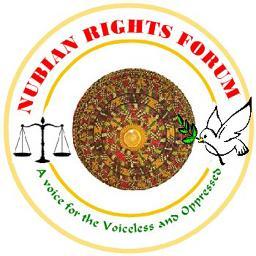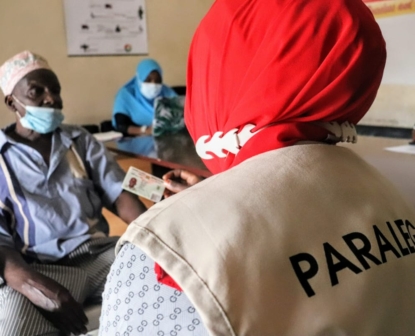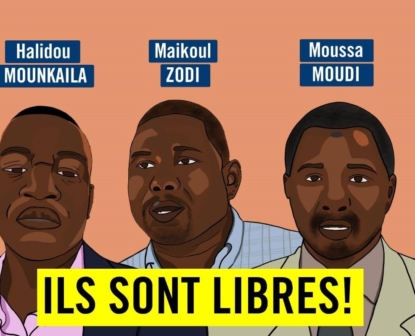Project
Challenging Marginalisation in Digitisation
-
Amount Funded
79,911 EUROProject Duration
01 Mar 2020 - 31 Oct 2020 -
-
Lead organisation
-
The Nubian Rights Forum is a human rights organisation that started in 1997 as a human rights movement that advocates for the rights of the Nubian ethnic minority in Kenya. The organisation is located in Kibera, Nairobi but operates country-wide through its networks of paralegals in the Nubian settlements.
The Nubian Rights Forum has reported major landmarks in its growth. These include firstly the institutionalisation of the planning process. Secondly there has been a shift in orientation from civic education to paralegal work, assisting the community in applying for citizenship documents like birth certificates, National Identification cards and passports. Thirdly it has a radio show which is used for civic education and empowerment and its main focus is on public interest and litigation.
-
Organisation
The Nubian Rights Forum is a human rights organisation that started in 1997 as a human rights movement that advocates for the rights of the Nubian ethnic minority in Kenya. The organisation is located in Kibera, Nairobi but operates country-wide through its networks of paralegals in the Nubian settlements.
The Nubian Rights Forum has reported major landmarks in its growth. These include firstly the institutionalisation of the planning process. Secondly there has been a shift in orientation from civic education to paralegal work, assisting the community in applying for citizenship documents like birth certificates, National Identification cards and passports. Thirdly it has a radio show which is used for civic education and empowerment and its main focus is on public interest and litigation.
-
Project
-
-
-
The ten month Sudden Opportunity grant by Nubian Rights Forum (NRF) titled Challenging Marginalisation in Digitisation seeked to ensure minority communities engage in political processes to ensure the transition to digital identity as an opportunity to right past wrongs rather than entrench discriminatory and unequal treatment.
Kenya’s Huduma Namba, meaning service number in Swahili, is a biometric digital identity program. It is intended to be the ‘single source of truth’ about a person’s identity. Given the magnitude of changes proposed, the Huduma Namba bill requires massive citizen participation which is currently lacking. The NRF project proposed to move the discussion to the national level on an urgent basis as the bill to be passed with little knowledge or involvement from the public would prevent the Nubian community from accessing services. The Nubian Rights Forum together with the coalition (Haki Centre, Haki na Sheria, Paranet, and Namati) saw tremendous changes since the beginning of the project. Many of these changes and achievement were possible through the work of paralegals and the management who made sure that the community and the nation continues to get empowered and involved on matters Huduma Namba.
One of the most significant impacts was community-led advocacy. Building upwards from community forums, radio/media, and community skills training, NRF saw members of the target communities plan and implement their own advocacy actions related to Huduma Namba and identification. These actions have targeted local, regional, and national policy makers from registrars to Members of Parliament, demanding change towards equality in the system. For example, on the coast, Haki Centre supported the Pemba community to engage with their Women Representative on issues related to inclusion in Huduma Namba.
Documenting our stories
Together with Namati, the team published an op-ed in The Standard titled “Issuance of Huduma Cards is Illegal.” There have also been multiple media outputs produced by participating journalists in print, video, and radio formats. These include an article in Talk Africa, a video on Tuko, a radio segment on Milele FM, a feature on K24 TV, and an article in People Daily. This article also showcases some learnings and innovativeness the project injected in the daily operational activities to ensure maximum reach to rightsholders the team worked with.
What next?
The Nubian Rights Forum expect the effects of the new knowledge, skills, and confidence will continue through community-led advocacy in 2021 on these issues –and even extend to the communities’ ability to address other concerns through these same methods.
-
News





